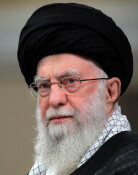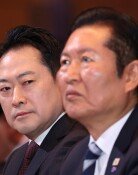Gov`t Received Japan PM`s Statement Tues. Morning
Gov`t Received Japan PM`s Statement Tues. Morning
Posted August. 12, 2010 08:49,
The Korean government received the full statement of Japanese Prime Minister Naoto Kan Tuesday morning and sent its acknowledgment to Tokyo shortly before he issued the statement, the Japanese daily Asahi Shimbun said Wednesday.
A government official in Seoul said Tuesday, We received the statement at 6 a.m.
Asahi said Japanese Foreign Minister Katsuya Okada, who was visiting Central Asia, called Korean Foreign Affairs and Trade Minister Yu Myung-hwan Monday to give an overview of the statement but did not provide a detailed explanation.
Seoul demanded the full statement throughout the night and Tokyo sent it at 6 a.m. Tuesday. Korea sent to Japan a message of agreement around 10 a.m. shortly before a Japanese Cabinet meeting on making a final decision on the statement.
Seoul could not get information on the statements content earlier because Tokyo tried to prevent opposition from appearing in Korea before the announcement. Another reason was for Korea not to actively intervene in the process of drawing up the statement.
In a situation where Korean civic organizations demand compensation and apologies for Japans past wrongdoings, Seoul worried that prior consultation with Tokyo could fuel criticism over lack of progress or the making of secret promises, the daily said.
Lee Sang-deuk, the older brother of President Lee Myung-bak, worked to make the statement possible behind the scenes. Lee Sang-deuk is also president of the Korea-Japan Parliamentarians Union and a former vice speaker of the National Assembly.
Lee Sang-deuk told Kozo Watanabe, the head of the Japan-Korea Parliamentarians Union who visited Seoul last month, If a forward-looking statement is made by the Japanese prime minister, my brother is willing to end historical issues.
The daily said Korea merely influenced the timing of the announcement. A high-ranking official in Seoul urged a Democratic Party of Japan lawmaker who visited Seoul late last month to ensure that the statement was issued before Aug. 15. This was to allow President Lee to reflect the statement in his Liberation Day speech.
Japanese Land and Transport Minister Seiji Maehara, who also leads a group within the Democratic Party of Japan seeking strategic relations with Korea, also visited Seoul late last month.
Considering the circumstances surrounding the statement, Seoul apparently worked hard for it through various channels such as politicians, diplomatic authorities and scholars, though not at the forefront to make detailed requests.
jkmas@donga.com spear@donga.com







